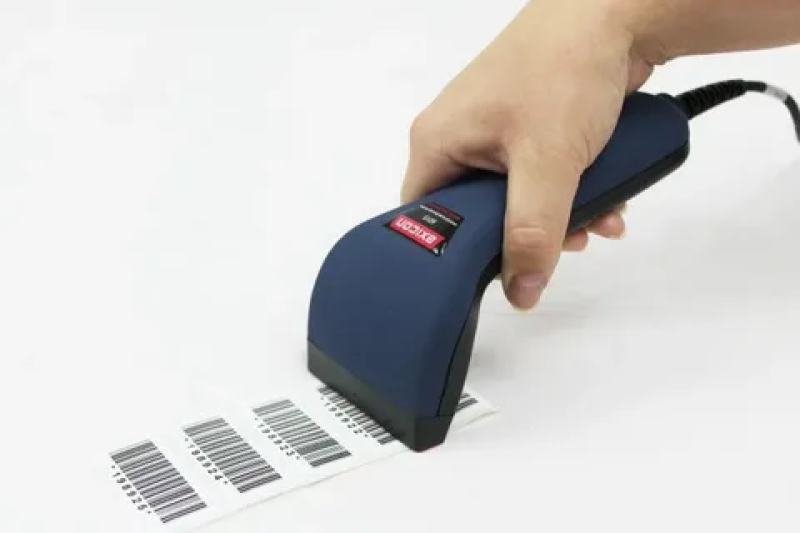In today’s rapidly evolving retail and manufacturing landscapes, barcode verifiers have become indispensable tools for ensuring the accuracy and reliability of barcodes. These devices serve as critical instruments in quality control processes, verifying that barcodes meet the required standards to facilitate smooth scanning and data capture. With the surge in global supply chains and e-commerce operations, the need for robust barcode verification has intensified, pushing industries to adopt sophisticated verification technologies that guarantee product authenticity and operational efficiency.
Understanding the Role of Barcode Verifiers in Modern Supply Chains
Barcode Verifiers are specialized devices designed to evaluate the quality and legibility of barcodes by analyzing elements such as contrast, decoding capability, and print defects. Unlike ordinary barcode scanners that simply decode the information embedded within a barcode, verifiers perform a detailed inspection based on international standards such as ISO/IEC 15416 for linear barcodes and ISO/IEC 15415 for two-dimensional codes. This function is crucial in industries where barcode errors can lead to misidentification, shipment delays, or inventory inaccuracies. Barcode verification helps reduce costly returns and enhances the overall consumer experience by facilitating error-free transactions across retail points.
Navigating the Latest Market Trends in Barcode Verification Technology
Recent market research reports highlight a notable shift towards handheld and portable barcode verifiers integrated with wireless connectivity, allowing real-time data transmission to enterprise resource planning (ERP) and warehouse management systems. These advancements offer businesses more flexible inspection points, from production lines to distribution centers. Furthermore, the rise of 2D barcodes—such as QR codes—used extensively in pharmaceutical, automotive, and food industries has led to increased demand for multi-symbology verifiers that can assess both linear and matrix codes with equal precision.
With an increasing emphasis on regulatory compliance and anti-counterfeiting efforts, manufacturers and brand owners are also leveraging verification systems to certify barcode quality at every stage of the product lifecycle. The continuous advancements and the growing necessity for enhanced traceability emphasize that barcode verifiers are no longer optional but vital for operational excellence.
Commercial Benefits Derived from Investing in Barcode Verification Solutions
Investing in advanced barcode verification equipment translates directly to commercial gains by minimizing scanning errors and enhancing supply chain transparency. High-quality barcode printing and verification reduce the risk of rejected shipments and regulatory sanctions, particularly in sectors like pharmaceuticals, where barcode accuracy can affect patient safety. Additionally, consistent barcode quality significantly accelerates checkout times, improving customer satisfaction in busy retail environments.
Moreover, industries adopting barcode verifiers experience fewer manual interventions and decreased labor costs associated with handling barcode errors. Enhanced barcode data integrity supports faster inventory turnover and improves management of recall procedures when necessary. Therefore, the initial investment in barcode verification technology can lead to substantial cost savings and revenue protection over time.
Navigational Guide to In-Depth Industry Research on Barcode Verification Market
For stakeholders aiming to deepen their understanding and explore comprehensive analytics related to barcode verification systems, several extensive market reports provide in-depth insights. These studies cover market segmentation by product types, application areas, and geographic distribution, shedding light on the competitive landscape, strategic developments, and future growth trajectories. Businesses seeking to align their operational strategies with emerging trends benefit from navigating these detailed analyses, which elucidate key drivers such as technological innovations, regulatory frameworks, and customer preferences shaping the industry.
Market intelligence reports also offer forecasts and evaluation of regional market penetration, enabling firms to identify lucrative investment opportunities and align their product development pipelines accordingly. Accessing such reports aids decision-makers in grasping competitive advantages, benchmarking performance, and anticipating shifts in global demand.
Transactional Processes and Integration of Barcode Verification in Business Operations
Incorporating barcode verifiers into transactional workflows involves seamless integration with existing scanning and labeling infrastructures. Modern verifiers are designed to connect effortlessly with label printers and scanning devices, providing instant feedback to production teams about print quality and encoding accuracy. This integration helps eliminate defective labels before they reach packaging stages, ensuring that every barcode adheres to predefined quality standards.
The transactional benefits are further accentuated by software solutions that manage verification data, enabling automated compliance reporting and process improvement tracking. Such capabilities empower organizations to maintain audit trails essential for regulatory inspections and supply chain audits. Automated data-sharing between verifiers and enterprise systems also reduces human error and accelerates overall throughput, fostering greater operational agility.
Get This Report in Japanese Language: バーコード検証機
Get This Report in Korean Language: 바코드 검증기
Read More Articles Related to this Industry- Recent developments in Racing Drones Industry
About Author:
Ravina Pandya, Content Writer, has a strong foothold in the market research industry. She specializes in writing well-researched articles from different industries, including food and beverages, information and technology, healthcare, chemical and materials, etc. (https://www.linkedin.com/in/ravina-pandya-1a3984191)
